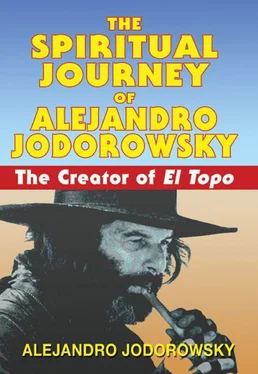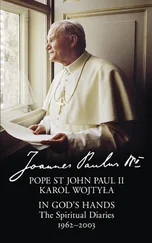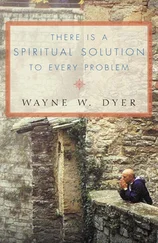Ejo gave a loud “Ho!” of satisfaction and executed a graceful little bow. Then, half singing:
Ame no ya wa
Shita bakari yku
Hotaru kana!
Night of sudden downpours
Fireflies fluttering on the ground!
“Ejo, my dear friend, I think that Buddhas must adapt to their circumstances. Even in the mud, fireflies still shine. In adverse circumstances, the awakened mind, true to itself, does not trouble itself or give way to despair.”
“Ho! Easy to say, very difficult to realize. . My mother and my four grandparents were dead. I was a child whose only family was a father who was drunk nine months of the year. In spite of my young age, I could understand his widower’s grief. But he never understood my orphan’s grief. Through long nights of pouring rain, forcing myself to smile, performing my filial duties, my heart was fluttering in the mud.
“When I was nine years old, I returned from school one day to find my father speaking with a Zen monk. Shaking a piece of paper in my face, Kyubei said: ‘This is a contract that gives Keikisoken Kodaishi the right to kill you if you don’t apply yourself to practicing his teachings. Make no mistake: from now on, being a good monk is a matter of life and death for you. Now eat your rice and go to bed. Tomorrow, at dawn, you will leave with your teacher for the Horyuji Monastery. I am unworthy of raising you. If you stay with me, you’ll become a beggar. This is the last time we will see each other.’ Then he took me in his arms and we both wept. At midnight, I heard his soft steps going outside. I looked out the window and saw him walking toward the willow forest. Taking great care in order not to disturb the sleep of my future mentor, I took a half hour to get dressed and left the house to spy on my father. I found him kneeling near the lake, so motionless in the moonlight that he seemed like a silver statue. To my great surprise, in spite of the winter cold, a solitary firefly appeared. Its great size and brightness indicated it was a female. After circling several times around my father’s head, it settled on his forehead. Then, with the slowness of a dream, he began to walk with tiny steps toward the mirror of the motionless lake. Without making any waves, he entered it little by little, until his head finally disappeared under the water. The firefly never left his forehead. In my child’s mind, the lake had consumed my mother and my father.”
Ejo took a long drink of sake. Then he recited:
Moe yasuki
Mata ke yasuki
Hotaru kana
Swiftly, you light up
Even more swiftly, you go out,
Insect of light
At this moment, I saw us — the Zen monk and myself — in the midst of the river of time, in the center of an infinite sphere, burning like two logs, like two joyous fireworks which leave no trail in the sky, savoring the paradise of the instant, a moment that would never repeat itself. Should we weep because we leaped into the void? With no beliefs to console us, without inventing a destiny for ourselves through compulsive actions, what would we do with this inevitable life?
As if reading my thoughts, Ejo recited two more haiku as a kind of response:
Yo no fukuru
Hodo okinaru
Hotaru kana
The more impenetrable the darkness,
the more your own light shines
Yo ga akete
Mushi ni naritaru
Hotaru kana
Dawn appears.
Fireflies are now only insects
The first rays of sunlight imparted a golden tint to our skin. Sleepy and queasy from all the drink, I nevertheless ventured an interpretation, feeling that my drunkenness would excuse me, even if it were wrong. “If I compare the sublime interdependence of all things — fireflies, dark nights — to my own fixed ideas of the world and myself, I realize that I am not a stranger, but a participant. Nothing belongs to me, not even my consciousness. All places are open doors; my own existence is impossible without that of others. When love — the dawn — appears, we dissolve into the world, becoming nobody.”
Ejo, as drunk as I, let out a long “Hooooo!” Then, in a stuttering voice, he related one last memory: “The shop of the firefly merchant was lit by hundreds of these poor insects crowded in small cages. When my father received the money and returned in the night with his empty net sack, he always said to me, with sadness: ‘And now we must go forth into this dark night with bodies that do not shine.’ Then he would enter a deep sleep while remaining in his meditation posture. I would get up unsteadily and leave him there, like a golden Buddha, snoring loudly.”
I drove home, weaving as little as possible. In the early morning hours, the streets were already full of traffic. At every red light, beggars appeared, each with their own method of attracting attention. At the first stop, I placed the golden ring in the hat that a skeleton-thin urchin held out to me after he emitted flames from his mouth by spitting benzene onto a torch. At the second stop, I gave all the money in my pockets to three kids in clown costumes with enormous buttocks. At the third stop, I gave my coat and shirt to an old man with a small monkey that he had trained to stand on its nose. At the fourth stop, I gave my shoes and socks to a woman who juggled four small rubber skulls. At the fifth stop, I offered my pants to a mother who carried a blind child.
I arrived home in my shorts. Collapsing into bed and just before plunging into a deep sleep, I remembered that my parents had never caressed me.
Ten hours later, I was awakened by cries of pain from my cat, Mirra, who was having a difficult time giving birth. Sensing an emergency, I drove her to the veterinarian. On the operating table, my black angora gave birth to one beautiful kitten with long, soft, gray fur, and then she died. Seeing the little orphan sucking desperately at the nipples of its dead mother, I thought of Ejo.
Although I knew many details of the strict life of a Zen monk, it was with great difficulty that I tried to imagine how this little nine-year-old boy, deprived of his family, friends, childhood games, and favorite places could live in a monastery, far from any contact with feminine tenderness — but perhaps he had already ceased to miss such attention? An austere life of meditation, prayer, work, service, obedience, begging alms, a life in which the negation of himself was considered the supreme good: I imagined him after his arrival at the monastery, before receiving his first meal, trembling with hunger and timidity, walking toward the cell of the severe shika , the head monk, to bow to him and thank him for his hospitality. I saw him sitting still, holding back his tears, while an older novice shaved his head. Any illusions that bound him to the world must have dropped away along with the hair. I imagined him scrubbing floors, emptying excrement from the latrines, working in the garden, helping in the kitchen, and taking his place on a zafu in the zendo, having vowed never to cease in his meditation until he attained enlightenment. Amid this group of severe adults, he would never know a moment of privacy. His only personal space was a tatami , a rectangle of woven straw upon which he slept, dreamed, and meditated. A block of wood served as his pillow, and he was given a space in the communal closets to keep his bowl; a razor to shave his head; a thin, folded mattress; and a sutra. Nothing else. No toys.
Every time he entered or left the zendo, he could see a wooden sounding block inscribed with large letters: “It is a matter of life or death. Nothing is permanent. Time passes quickly and waits for no one. You must not waste it.” In the morning, when the head monk looked at his palm and was able to distinguish its lines, he took a mallet and struck the wooden block. This series of loud, dry sounds woke the child, and he began his day of exhausting tasks. In the evening, when the head monk could no longer see the lines in his palm, he struck the block again. This announced a meager supper, after which the boy must express his gratitude with deep bows and the chanting of sutras. Finally, at exactly nine o’clock, repeated blows on the block announced the end of the day. Before unfolding his little mattress and taking up the required ritual posture of sleep among the other monks, he saw written on another large plank the strict rules of monastic life. He was taught how to bow and salute, how to walk after meditation, how to drink tea, how to take off his sandals, how to urinate and defecate. It was all written, and no spontaneity was permitted. No private conversations were allowed — no comments, no grumbling. He could use only three cups of water to wash himself each morning, holding the cup in one hand and washing his face with the other, like a cat. Once the roshi came by as he was doing this and urged him to learn to do with only two cups, for water was a common good, and this way he would be leaving more for future generations.
Читать дальше












